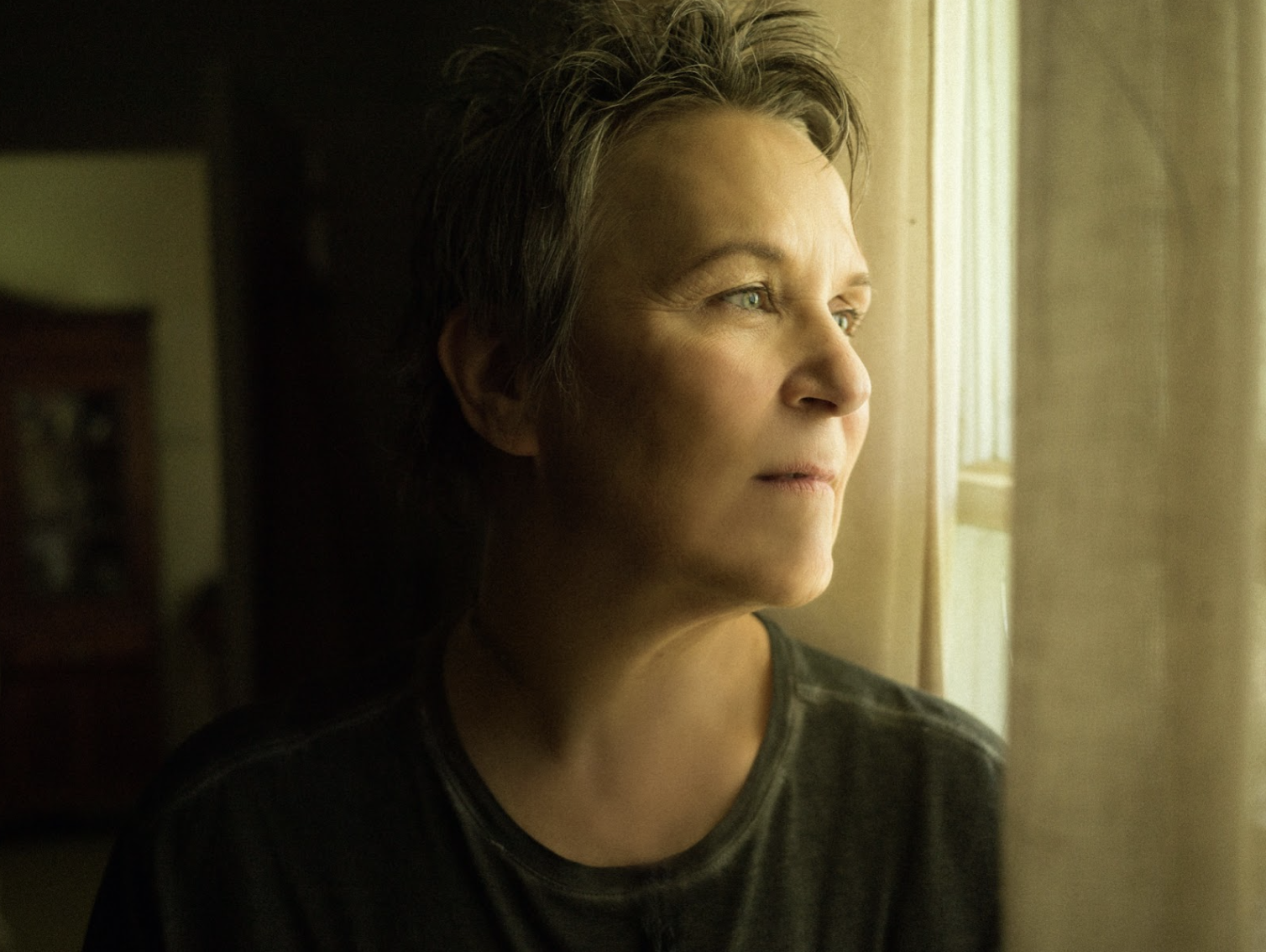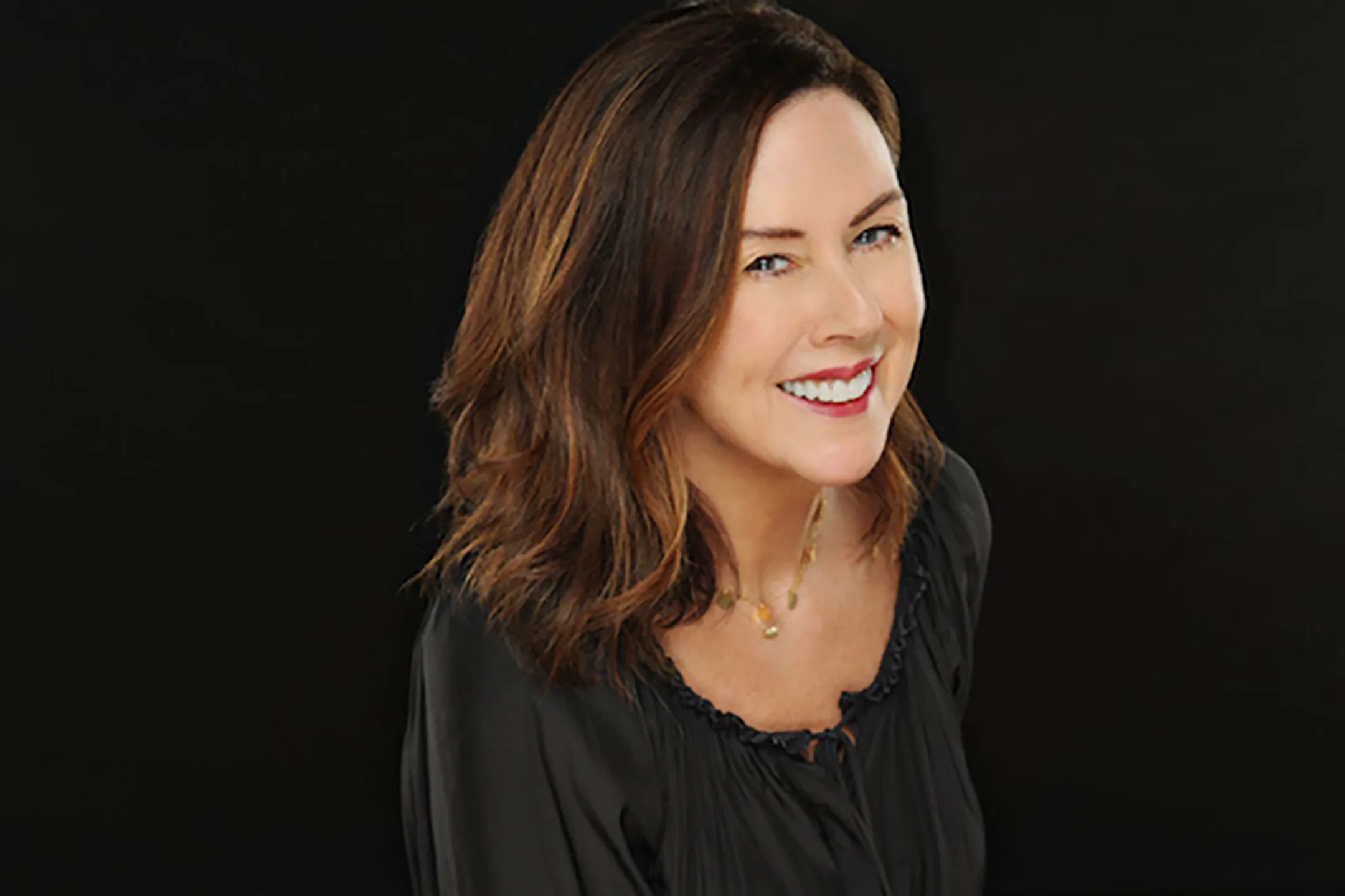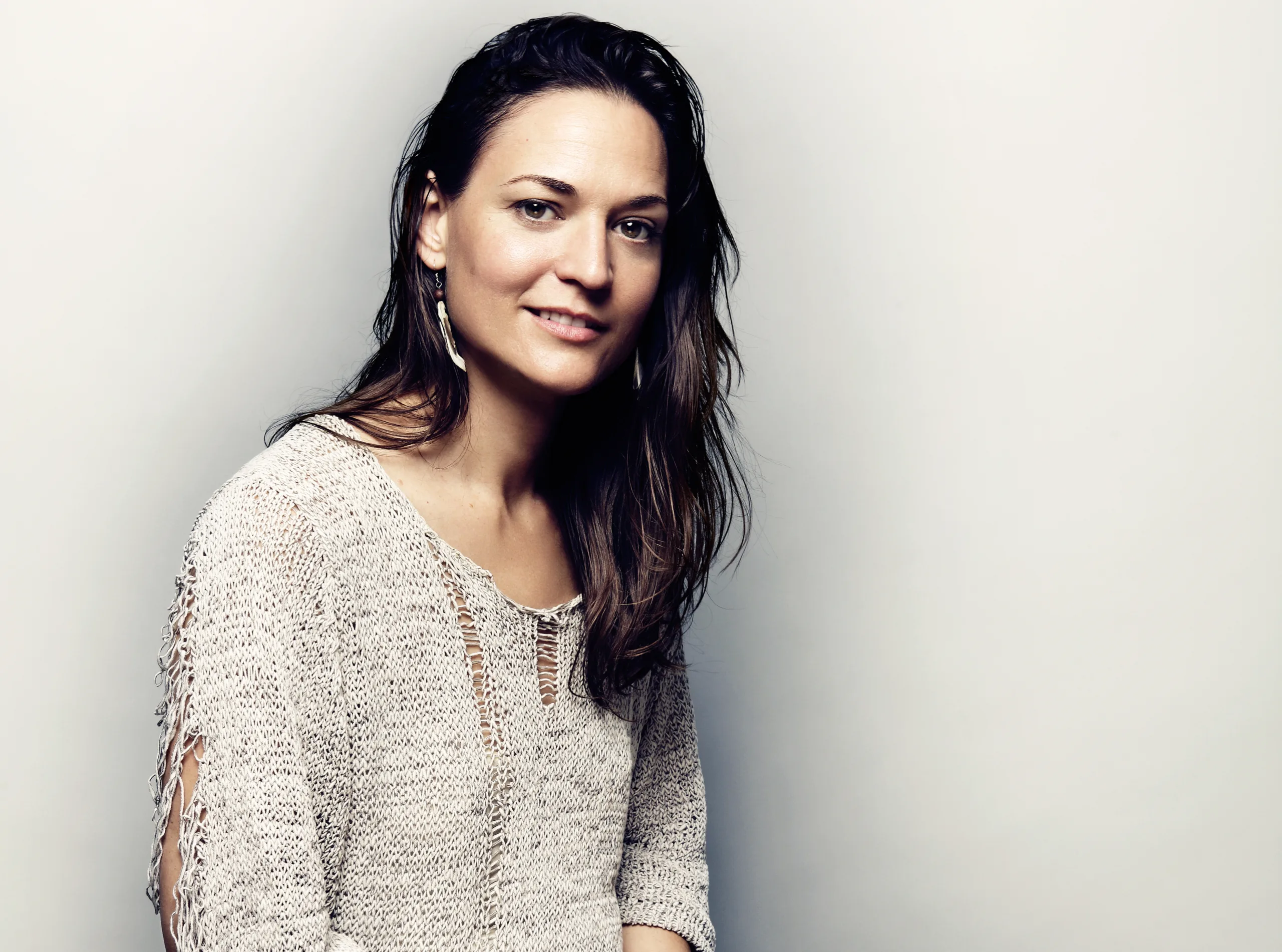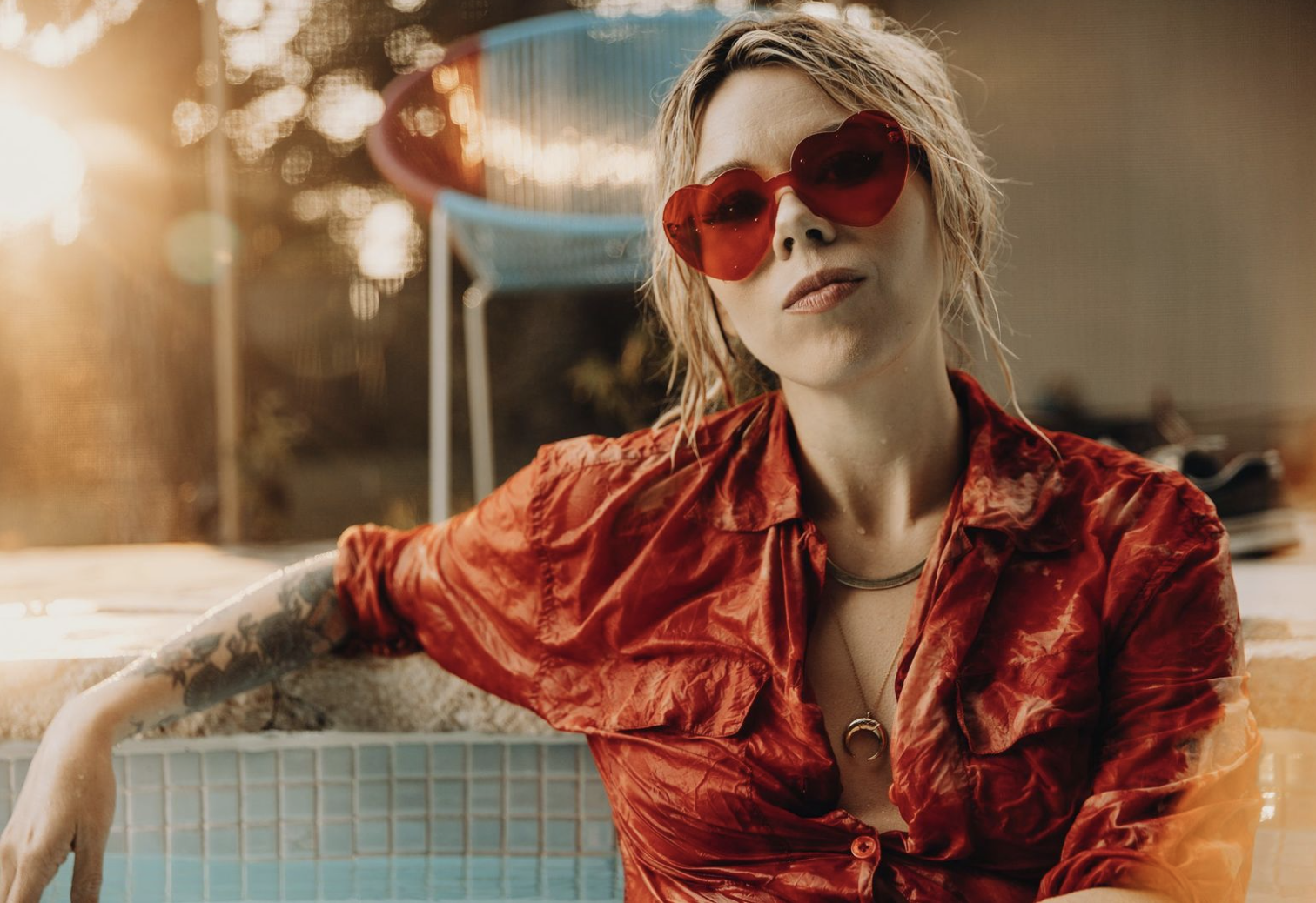Singer-Songwriter Mary Gauthier Interview

Mary Gauthier is a critically acclaimed singer-songwriter known for her raw and emotional storytelling. With a career spanning over two decades, Gauthier has released 11 studio albums and has been nominated for multiple awards, including a Grammy. Her music often explores addiction, abandonment, and redemption themes and has resonated with audiences worldwide. In 2021 she published her first book, the illuminating Saved by a Song: The Art and Healing Power of Songwriting. She recently talked with The Ranch’s Folk Festival co-host Carissa Stolting.
Your music feels like a pool of emotions all mixed up together, nothing separated or compartmentalized: joy and sorrow, beauty and suffering. In a past interview, you said: “You’ve got to express all of your joy – a joy that’s not free from pain. There’s grief all around us, but there’s this ability to love and still be aware that the sky is beautiful and the hand that I’m holding is filled with love.” Can you share– in your opinion– what makes music a good medium for holding multiple emotions at once, grief and love, joy and pain?
Well, music and song are a bridge to the ineffable. The best of them are timeless; they are a language in and of themselves, a mother tongue of emotion that everybody knows because we feel it. The experience of music and song (at their highest level) is visceral. It happens in the viscera, the solar plexus, it’s felt more than thought. They can go to the very core of who we are, and hit us at the deepest places, places that cannot be accessed directly with language.
I keep thinking of the words “surrender” and “humility” when I listen to certain songs of yours, especially “Mercy Now.” I wonder if you could share how (or if) these concepts played a role in your choice to follow the “call to song” and if they continue to play a part in your songwriting?
Yes! Those are two big mandates for me, because I am a sober woman. I got clean on July 13, 1990; 32 years ago. Humility and surrender are how recovery works in the long term. They are taproots to spiritual growth and emotional healing. I suppose they arise in my songs because they are a huge part of my life. I have to live them both, daily, to the best of my ability-and some days are better than others!
I love this quote of yours “Inspiration is difficult to source, but it is born from the willingness to lean into not knowing. Not knowing and agreeing not to look or to see are two very different stances. Not knowing is a place ripe with possibility, receptive to discovery. To work this way requires audacity and boldness.” Can you share what practices you have to continue to encourage yourself to lean into this space of not knowing? When you get off track, how do you go back?
In art, getting off track IS the track. This is a hard concept to explain, but as I see it, all artists work in the dark. We do not know where we are going because we have never been there before! When I write a song, I am looking for a truth that I cannot name, searching for a question I cannot articulate. It’s through trial, error, and effort that the right words come, the right notes, the right spaces and silences remain. Songs are good questions, more than good answers. Their job is to remind us that we are not alone.
Rifles & Rosary Beads was co-written with wounded U.S veterans and their families through a collaborative exchange where you created songs based on veterans’ stories and experiences. It seems you were in a position of translator–or bridge– taking stories and turning them into songs, which must require an act of deep and sensitive listening. Could you share what it felt like to be in that space as a musical translator working to create a song faithful to the story, and an example of a challenge you incurred in the act of translation? And then…could you share a moment when you realized that the music was resonating?
Our job as songwriters at SW:S is to help turn the veterans’ stories into songs. The songwriter brings decades of songwriting experience, the veteran brings their story. Before I worked my first retreat, I assumed that asking a wounded soldier to open up to a songwriter would be a stretch. I’d heard that silence is the soldier’s code; that those who have seen combat do not talk about it, those who talk about it have not seen it. Coming out the other side alive is enough. Soldiers talk to soldiers if they talk at all. But I quickly learned that when a veteran feels seen and heard, not judged, or evaluated, they open up and help the songwriter turn their story into a song that allows others to see and hear them. This happens not by trying to write a “healing” song but through the vulnerability of emotional honesty. In this way, the dominant narrative of war trauma can be written into a universal story that many can relate to, even those who have no knowledge or experience of the military. The song can also become a step beyond the self, toward others who perhaps have felt the same way. A powerful transformation can occur when this happens. I knew this from personal experience, from how my own songs had transformed me.
Some of the veterans do not want to be at the retreat. They come because they don’t know what else to do. Someone who cares suggested it: their therapist or the VA, their wife, their pastor. They show up unsure and in pain. I see it on their faces during that first meal on Friday night, some are thinking, “This Kumbaya crap might be an all-time low, how in the hell is a song going to help me? My job is to sit with a veteran, just the two of us, in a quiet place, and ask them questions. “How are you doing? Where do you live? When did you serve? Where? What branch of the military? Are you still active duty, or retired?” We start talking. I ask them, “Is there anything you might want to write about?” Before long, they start to tell me their story, little by little. I play a little music on my guitar, and find a melody that matches what they’re saying. The music helps open them up; a sympathetic melody is like a magnet that pulls their story out. They feel seen and heard, which helps them feel safe. If it all goes well, we will create a song that is a mirror reflection of their soul, something the veteran can point to and say, “This. This is me. My song. This is how I feel.” It’s a powerful process, and yes, I have seen many women and men experience resonance for the first time since they were traumatized. Resonance brings hope, resonance can save lives.
We hope the Rancho La Puerta Folk Festival will also serve as an artist retreat to deeply relax and re-energize. What would make this a good week for you?
I have no idea what I am getting into at Rancho La Puerta, yet, but I anticipate making new friends, doing some great work with old friends, and relaxing into the festival with good food, plenty of rest, some bodywork, long walks, and great conversations.
Is there anything else you’d like to share with the Rancho La Puerta community? A sneak peek into an upcoming project, initiative, or something you’re excited about?
I am working on a one-woman show right now, a career retrospective. I’ve found a director, and we are working through the big story together. I wrote a book that came out in 2021 called ‘Saved by a Song’, so we will work with the stories in the book, and use that as a working title for the show.
I am also co-writing songs with songwriters I love and admire for a new project whose working title is “Songs for a Better World”. These two things should keep me busy for quite a while…..
Join us for an amazing week at The Rancho La Puerta Folk Festival, June 17 – 24.


